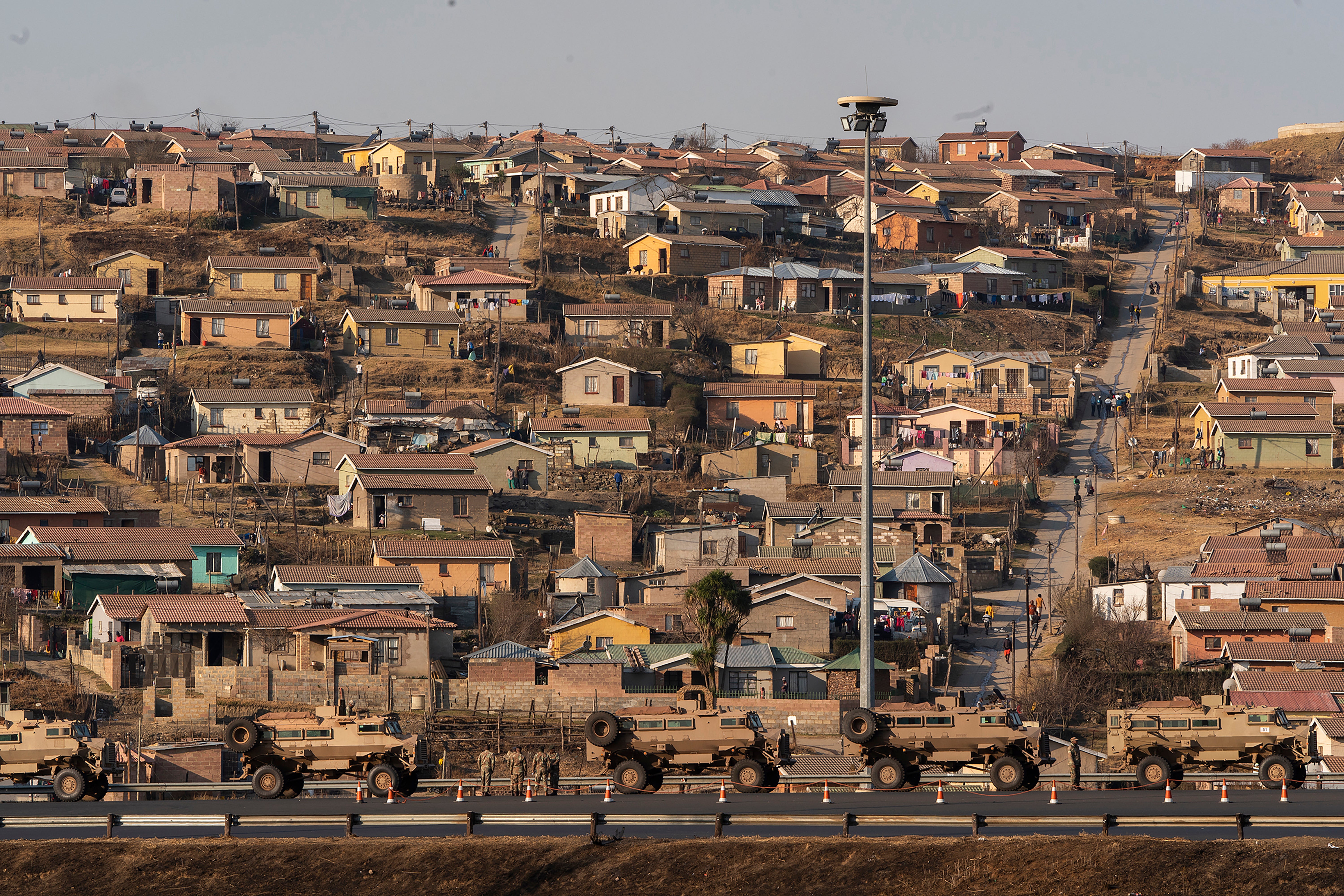Key highway reopens as South African army helps restore calm
A strategic highway in South Africa has reopened after being closed for a week by the violent unrest that rocked parts of the country

Your support helps us to tell the story
From reproductive rights to climate change to Big Tech, The Independent is on the ground when the story is developing. Whether it's investigating the financials of Elon Musk's pro-Trump PAC or producing our latest documentary, 'The A Word', which shines a light on the American women fighting for reproductive rights, we know how important it is to parse out the facts from the messaging.
At such a critical moment in US history, we need reporters on the ground. Your donation allows us to keep sending journalists to speak to both sides of the story.
The Independent is trusted by Americans across the entire political spectrum. And unlike many other quality news outlets, we choose not to lock Americans out of our reporting and analysis with paywalls. We believe quality journalism should be available to everyone, paid for by those who can afford it.
Your support makes all the difference.After being closed for a week by the violent unrest that rocked parts of South Africa a strategic highway has reopened, officials announced Friday.
The unrest, triggered by the imprisonment last week of former President Jacob Zuma began at the Mooi River toll gate for the N3 highway where more than 20 trucks were burned.
On Friday the 578-kilometer (360-mile) N3 toll road was reopened to traffic after it was cleared of obstacles. Gangs are no longer throwing rocks to impede traffic. The highway links Johannesburg South Africa's largest city and industrial hub, to the Indian Ocean port of Durban
South Africa's military, which is deploying 25,000 troops to help police quell the unrest in KwaZulu-Natal and Gauteng provinces, will patrol the highway. However, drivers are warned to use the road with care.
“It is vitally important to proceed with extreme caution and to stay alert at all times," said the highway authority in a tweet Friday. Motorists were advised to use the N3 and other roads in KwaZulu-Natal only if necessary, said the Automobile Association.
The reopening of the N3 highway is a significant step in returning the country to stability, but violence persists in parts of KwaZulu-Natal. Durban continues to be plagued by violence, with warehouses and factories burned.
The military is also working to keep open the N2 highway, which links Cape Town to Durban. The highways are vital transport routes carrying fuel, food and other goods and their prolonged closure threatens to cause shortages.
South Africa's unrest erupted after Zuma began serving a 15-month sentence for contempt of court for refusing to comply with a court order to testify at a state-backed inquiry investigating allegations of corruption while he was president from 2009 to 2018.
Protests in Gauteng and KwaZulu-Natal quickly escalated into a spree of theft in township areas. They have not spread to South Africa’s seven other provinces, where police are on alert.
More than 2,200 people have been arrested for theft and vandalism and 117 people have died, Khumbudzo Ntshavheni, acting minister in the presidency, said Thursday. Many were trampled to death in stampedes when shops were being looted, according to police.
The rail line to the strategic Indian Ocean ports of Durban and Richard’s Bay was also closed by the unrest, the state-owned transportation company, Transnet said earlier this week. The 688-kilometer (427-mile) rail line ferries hundreds of tons of goods weekly to the ports, including vehicles, gold ore, aviation fuel, petrol, wheat and citrus fruit. The goods are then shipped to markets in Asia, Europe and the United States.